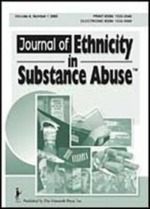Resumen
Background: The Mexico-Guatemala border is characterized by highly mobile populations including female sex workers (FSW). HIV testing among (FSW) in this region remains suboptimal due in part to stigma and limited access to health services. There is a lack of understanding of how migration may be associated with HIV testing among FSW in highly mobile contexts. The aim of this research is to understand the role of migration and mobility experiences in influencing HIV testing in the past year among FSW living at the Mexico-Guatemala border. Methods: Using modified time-location sampling (2013-2015) we recruited 255 FSW in four communities (i.e., Tecún Umán and Quetzaltenango, Guatemala; Tapachula and Ciudad Hidalgo, Mexico). Upon written consent, we conducted face-to-face interviews to obtain information on sociodemographics, migration and mobility experiences, and HIV testing in the past year. Crude and adjusted logistic regression models were used to evaluate relationships. Results: Sixty percent of participants were born in Guatemala, 19% in Mexico, 11% in Honduras, 6% in El Salvador, 4% in Nicaragua and 1 participant in the Dominican Republic. Forty-one percent of the total sample (n=105) reported receiving an HIV test in the past year. Recent migration was significantly associated with greater odds of HIV testing in the past year (OR=2.23, 95% CI=1.31-3.78, p< 0.001) in univariate analysis. In multivariable analysis, short-term travel to engage in sex work in another country were independently associated with greater odds of HIV testing in the past year (AOR=2.25, 95% CI=1.08-4.69, p< 0.05) after adjusting for key confounders age, years in sex work, having a current health permit, giving percentage of earnings to a bar owner, participation in HIV activities, and client volume. Conclusions: FSWs in this setting face low HIV testing access and population-specific approaches addressing structural factors to address potential testing barriers. Tailored outreach to highly mobile women - particularly those engaging in short-term work-related mobility - may facilitate access to voluntary testing for this underserved and marginalized population. Findings from this study may inform future research considering migration and mobility to address HIV prevention in other settings.






